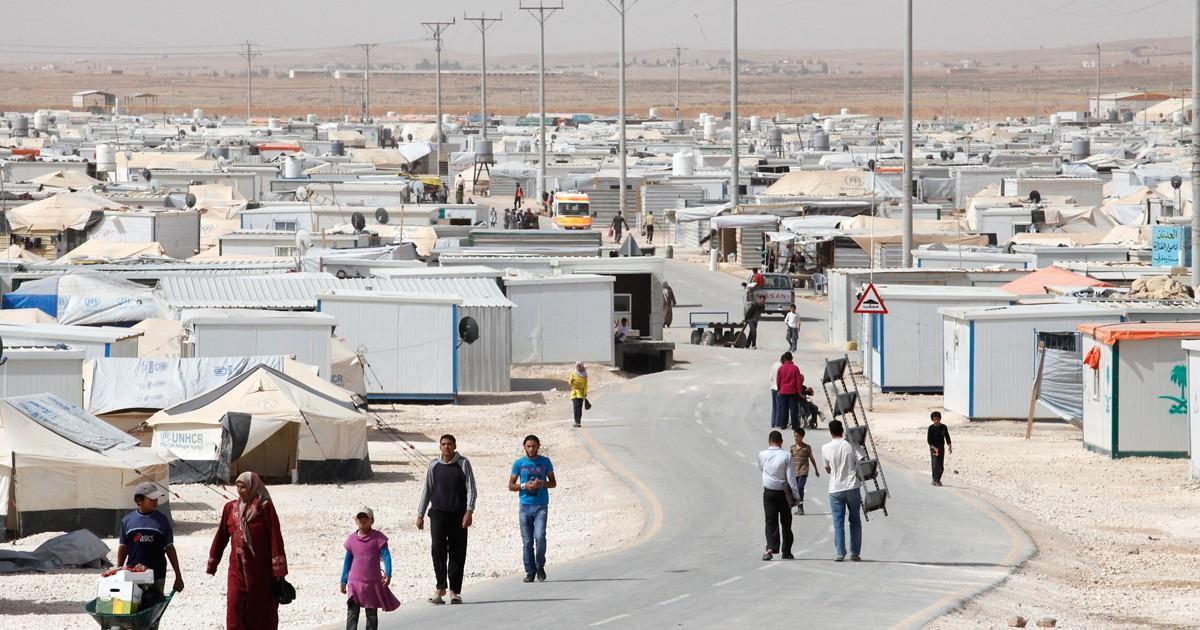writes Yinebeb Bahru
Africa-Press – Ghana. The number of displaced people is growing, and so are the costs for host countries. But allowing refugees to work they can save the state money and contribute to economic growth.
Sahar Fuad, a Yemeni refugee, arrived in Ethiopia with her two children. She had left everything behind to flee violent conflict. Faced with creating a new life in a new country, she carried nothing but hope. She launched a tufting business to create rugs and carpets in Addis Ababa. Her story reflects the transformative potential of economic inclusion for millions of forcibly displaced people worldwide.
Economic inclusion for refugees means providing access to employment opportunities with a work permit, skills training, financial services, and the ability to start businesses. Such integration enables refugees to achieve self-reliance and contribute to the local economy, reducing dependence on aid. Yet despite the benefits, in many countries, refugees are prohibited from working, leaving them reliant on the state.
An opportunity in disguise
In the past decade, the number of forcibly displaced people has more than doubled. According to the UN Refugee Agency (UNHCR), there are currently 122 million displaced people across the globe. Lower-middle-income countries, in which 42 per cent of the population lives below the poverty line, host over 70 per cent of the world’s refugees. Africa is home to 45 million forcibly displaced people, of which over 10 million are refugees and asylum seekers. Each year, fewer than 3 per cent return to their home countries. Integrating refugees into host economies is both a moral imperative and a strategic necessity. At the moment, only 20 per cent of refugees in low-income countries are self-reliant, rising to 50 per cent in middle-income countries. This creates strain on government resources and potentially breeds resentment.
In 2016, the UNHCR introduced the Global Comprehensive Refugee Response Framework (CRRF). The policy aims to transform the way the international community responds to large-scale refugee movements. It emphasises a more inclusive, predictable, and development-oriented approach. Development organisations such as Inkomoko, the Danish Refugee Council, the International Rescue Committee, and others play a key role in helping to integrate refugees in CRRF-implementing African countries.
Take Inkomoko as an example: a social enterprise working to support refugees and their hosting community through business development and financing. Among the participants in the livelihood program, over 75 per cent of entrepreneurs are improving their skills, with businesses experiencing a 70 per cent increase in revenue within six months. Inkomoko has disbursed £22 million in affordable loans, with a remarkable repayment rate of over 95 per cent, and has created more than 40,000 jobs, benefiting both refugees and their host communities.
A study by the development agency DAI, covering two major refugee camps in Ethiopia, revealed that microenterprises generate average annual sales of between £1,100 and £1,500. Remarkably, 98 per cent of refugee-owned businesses employ between one and five people, contributing over 2,100 days of labour each year. Furthermore, 31 per cent are involved in cross-border trade, strengthening regional economic ties and promoting commerce beyond borders.
Holding back potential
Refugees often face significant economic barriers, including restrictive labour laws, non-recognition of qualifications, and discrimination, leaving them reliant on the informal economy. Many are confined to unstable, low-paying jobs without social protections, which hinders their potential and deprives host countries of skilled labour.
A study by UNHCR covering major refugee host countries showed that refugees are 60 per cent more likely than host populations to be employed in the informal sector, particularly in areas such as manufacturing and food services. Another study by the Massachusetts Institute of Technology shows that over 70 per cent of refugees globally work in the informal sector, facing exploitation, low wages, and job insecurity. Bureaucratic hurdles and a lack of social protections further exacerbate their vulnerabilities, stifling their potential and depriving host countries of a skilled and diverse workforce.
Allowing refugees to participate in the economy and workforce can significantly reduce the global aid burden. If host countries enable full economic participation for refugees, the annual global cost of assistance could fall by nearly 75 per cent. Even modest policy changes that ease labour restrictions could boost refugees’ income by 25 per cent, could generate over £8 billion in economic contribution, while also reducing the amount of assistance refugees require by £8 billion. A study focused on Syrian refugees in Jordan revealed that the economic participation of refugees in the country has reduced the need for international aid by £635 million per year.
Beyond the loss of potential GDP contributions, exclusion breeds social tensions and undermines global commitments to equity and inclusion. To overcome these barriers, host governments must implement inclusive policies such as granting work permits, recognising refugee qualifications, and ensuring access to financial systems. Private sector businesses in host communities should also drive economic inclusion by hiring refugees, supporting refugee-led enterprises, and integrating them into supply chains.
Economic inclusion is not a zero-sum game; it’s a strategic investment in human capital development, potential, and a pathway to shared growth. Refugees bring diverse skills and entrepreneurial spirit to their host economies. As the global displacement crisis intensifies and major donors, such as the US government, reduce foreign assistance, economic inclusion is no longer optional; it’s essential. Host countries must act, not just out of compassion, but in recognition of the mutual benefits that can be gained. A future where refugees thrive is a future that uplifts us all.
For More News And Analysis About Ghana Follow Africa-Press







